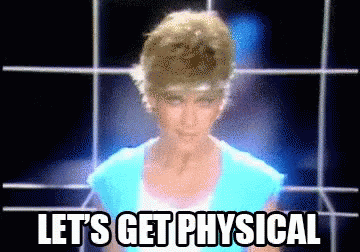This article was originally published on Technocracy News. You can read the original article HERE
Whether it’s internet rabbit holes or endless social media interactions, a new poll finds the more time you spend obsessing over what’s happening on your screen, the worse your mental health gets.
According to the survey, the average American feels like they lose three days per month while consuming online content. The poll of 2,000 Americans revealed that 36 days of our year are lost to scrolling, streaming, and bingeing content. It’s even worse for younger people. Gen Z Americans feel like they lose closer to five days per month.
The comprehensive study on media consumption trends by Talker Research also revealed that excessive content consumption can result in feelings of guilt, with the average respondent having three pangs of guilt per month. On average, Americans consume about six hours of content per day, with Gen Z Americans consuming closer to seven.
In honor of World Mental Health Day, the data split respondents based on their self-reported mental health and found that poor mental health and media consumption appear to have an uncomfortable connection.
Those with “very poor” mental health lose nearly six days per month to content consumption, while 19% of those who say their mental health is “very poor” estimate that they lose 15 or more days per month. In comparison, those with excellent and good mental health lose the fewest days (2.7).
This also aligned with feelings of guilt. Those with“very poor” mental health feel guilty most often — roughly seven times per month. Nearly half of those polled (42%) admit they feel like they consume “too much” media, and 36% say their mood is “often” negatively affected by something they see on social media.
Gen Z Americans were the most likely to feel like they consumed too much media, with 66% agreeing with that sentiment. Interestingly, those with “very poor” mental health were also found to be the most likely to use TikTok regularly (38%) and the most likely to report being “very likely” to be on their phone while watching something on television (46%).
Dr. Sham Singh, a Harbor UCLA-trained psychiatrist at Winit Clinic, offered three helpful tips for managing screen time to alleviate feelings of guilt.
- Implement a “Tech-Free” Zone. “Creating designated areas where technology is off-limits in your home can significantly impact your daily habits,” Singh says in a statement. “For instance, by making your bedroom a tech-free zone, you promote better sleep hygiene and relaxation, free from the distractions of notifications and screens. Similarly, establishing a tech-free dining room encourages meaningful conversations and family bonding during meals. These intentional spaces reduce screen time, foster healthier interactions, or enjoy quiet moments.”
- Set Phone-Free Intentions: “Before you reach for your phone, I advise you to take a moment to set a clear intention for its use,” says Singh. “Ask yourself what you need to accomplish—whether it’s checking messages, researching a topic, or responding to an email. This practice encourages a more mindful approach to technology, helping you avoid the trap of mindless scrolling. Having a defined purpose lets you stay focused on your task and minimize the likelihood of getting sidetracked by social media or other distractions.”
- Reflect on Content Consumption: “Keeping a journal of your experiences with various types of content can be an enlightening practice,” Singh suggests. “After consuming media—be it social media, news articles, or videos—take a moment to jot down your feelings and thoughts. Did you feel inspired, informed, or drained? This reflection helps you discern which content enriches your life and which might feel like a time-waster. Over time, you’ll develop a clearer picture of your media consumption patterns, enabling you to make more informed choices about what to engage with in the future.”
This article was originally published by Technocracy News. We only curate news from sources that align with the core values of our intended conservative audience. If you like the news you read here we encourage you to utilize the original sources for even more great news and opinions you can trust!










Comments